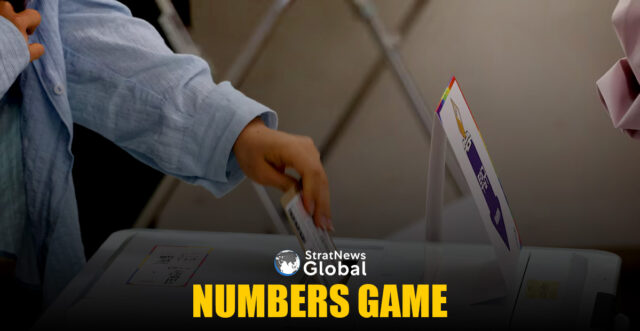South Koreans will vote on June 3 to elect the 21st president, seeking to restore stability after months of political unrest and a failed attempt by former leader Yoon Suk Yeol to impose martial law.
Here are some details about South Korea’s election system:
Single Round Election
The election is held in a single round and the candidate who receives the most votes is deemed the winner and entitled to serve one five-year term.
Leading Candidates
The top three candidates based on a recent Gallup Korea poll are the liberal frontrunner Lee Jae-myung of the Democratic Party, with 49% public support, followed by his main conservative rival Kim Moon-soo of the People Power Party with 35% and another conservative candidate, New Reform Party’s Lee Jun-seok, on 11%.
All of the six candidates remaining in the race are men with no women in the final lineup for the first time since 2007, according to the National Election Commission (NEC). South Korea has only had one female leader, Park Geun-hye.
The youngest candidate is Lee Jun-seok, who is 40, and the oldest is Kim Moon-soo at 73.
Number And Makeup Of Voters
There are 44.39 million eligible voters, with women accounting for 50.5% of voters, according to data on the electoral roll from the interior ministry.
South Korea is one of the world’s fastest ageing societies and the number of voters aged above 60 accounts for about a third of the electorate, outstripping the 28% share of those in their 20s and 30s.
Gyeonggi Province is home to the largest number of voters, accounting for 26.4%, followed by Seoul at 18.7% and Busan at 6.5%.
A total of 205,268 people overseas voted between May 20 and 25 in 118 countries, the NEC said.
Election Security
South Korea’s acting President Lee Ju-ho said on Monday the government was “transparently disclosing the entire process of the presidential election”, according to his office.
The National Election Commission will air CCTV surveillance footage of rooms storing ballots from early voting, with their entrances sealed before counting starts and transported ballots given police escorts, Lee said.
After votes are cast, ballots will be initially sorted by machines and then election workers will count them, the NEC said.
Election Schedule
The official election campaign is relatively short in South Korea in a bid to contain costs. It started on May 12.
There are 3,568 polling stations across the country open for early voting that will be allowed between May 29-30.
Election day on June 3 is a public holiday and voting will run from 6 a.m. until 8 p.m. with an indication of the results likely to start emerging that evening or early the next day.
On June 4, the National Election Commission is expected to verify the results and the inauguration of the new president will be held.
(With inputs from Reuters)





